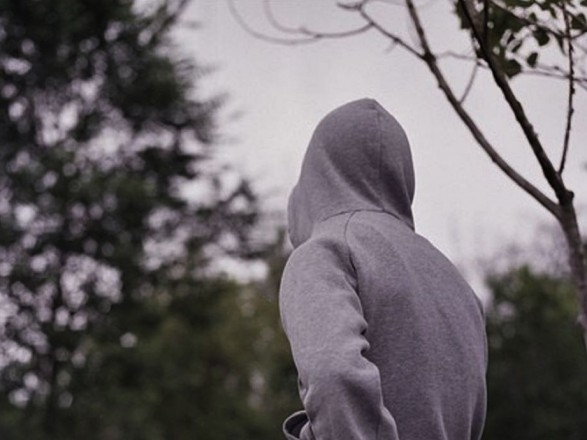Almost 15% of war victims may develop PTSD (post-traumatic stress disorder). Everyone, for the most part, experiences unpleasant symptoms when faced with traumatic events,
KYIV. UkraineGate , 15 , April , 2022 | War News
Primary stress
“People often have unpleasant symptoms when they face traumatic events. We are all different, but nevertheless, if you have felt tension, confusion, anxiety, fear, boredom and you have palpitations, dizziness – these are typical symptoms that occur after stress. If you do not experience any of the symptoms, this is also a normal reaction, “said the expert.
The response to stress depends on many factors. The level of complexity of the event faced by the person, the presence or absence of support from others, gender (usually women have a more severe reaction to stress), previous experience of meeting with traumatic events. The psychologist emphasizes that, usually, the human nervous system has three options for responding to stress: beat, run or freeze.
The “fight” reaction is characterized by active actions aimed at overcoming the situation.
During the “run” reaction, the person will try to avoid the situation as soon as possible.
The “freeze” reaction, from an evolutionary point of view, is the least advantageous option, because in this case a person will react passively to what is happening.
“We can’t choose the type of reaction on our own because it depends on the type of nervous system, and it’s congenital. But, even if you know that you have a freeze reaction, you should not be upset. Knowing this, you need to try to avoid stressful situations at all (as much as possible) or rely on the help of others. Aware = armed, ”adds the psychologist.
Emotional numbness
One of the features of the emotional reaction is “emotional numbness”. At a time when a person is facing an extremely stressful situation, the brain may seem to turn off emotions to reduce the level of suffering. Emotions are a signal that something is wrong with a person, or vice versa – all is well. In times of severe stress, feelings and emotions may diminish or even disappear so that a person can cope with the situation and act. This is a protective mechanism. Emotions usually return when things change for the better, but sometimes it can drag on. In this case, the psychologist advises to seek the help of a specialist.
First aid
“First, it is very important to understand that the algorithm of first aid after a traumatic experience is significantly different from the actions that take place a few days / weeks after the injury. This is your first aid kit, ”the speaker emphasizes.
The first component of psychological first aid is to ensure a safe / secure environment. It all depends on the situation, but if possible, it is important to try to increase your safety and the safety of loved ones.
Any psychological techniques will work worse if the person is in danger. In most cases, the stress response will go away on its own, especially if it is safe. Approximately 15% of victims may develop post-traumatic stress disorder.
The second component psychologist calls the satisfaction of basic physiological needs. We must not forget about food, water, sleep, a place where you can spend the night, and more.
“Man is a biological organism that will be 100% difficult to cope with psychologically when basic physiological needs are not met. Therefore, it is worth trying to take care of these moments in the first place, ”the expert adds.
Support from loved ones is also a must. The feeling that other people are not indifferent – helps a lot. The feeling of loneliness, on the other hand, is very destructive, sometimes even unbearable.
“You should think about the people you consider close, relatives and talk to them. It is not necessary to tell the details of what happened to you with the smallest details, the most important thing is the feeling of support, ”the agency’s interlocutor said.
Also, do not forget about techniques that are aimed at relaxation. This is a progressive muscle relaxation that reduces the physical component of stress – tension. Breathing techniques are an important helper.
“Try to breathe slowly and deeply, paying attention to what is happening to your body at this time – how air enters the nasal cavity, airways enters the lungs, how your chest moves during breathing movements… This will help reduce anxiety and focus on sensations “, – the psychologist continues.
Return to everyday habits
The expert notes that if a person has the opportunity to return at least some components of the usual way of life – he should do it as soon as possible. This restores a sense of stability and improves the quality of life. If a person has rituals, he must return to them.
Things not to do
These include alcohol, drugs, overeating, overwork and lack of rest, neglect of personal hygiene.
“As for the children, there are some important points. You can explain to the child what is happening with the help of metaphors, examples from fairy tales / cartoons. It is important that the child feels your support – you can ask him how he feels, assure that you are around and able to protect. The child’s brain works in such a way that by the age of 4 the child usually does not remember events well (because the part of the brain responsible for memory just completes its formation at about 4 years), so there is a high probability that the child will not remember “She remembers what happened to her,” she said.
The psychologist also recommends limiting the time to watch the news. In particular, it is better to allocate a specific number of minutes when a person reviews reliable sources of information. Excessive amount of time spent on news maintains anxiety. In the beginning, watching news can give you a sense of control and reduce uncertainty, but then there is an increase in anxiety, when you want to watch the news more often.
Taking care of your values
“Unfortunately, we are in a situation where it is difficult to predict what will happen tomorrow or in a month. But don’t put off your needs “until tomorrow” or “when the war is over”. Of course, it’s not easy to change, but think about it, maybe you can influence it. This is a mechanism that will change your focus from an external situation that we cannot control to an internal one. This way you have the feeling that you are doing everything possible for yourself, ”adds the specialist.
The psychologist values the care of relatives, family and friends. Even if a person does not have the opportunity to physically hug their loved ones – it is important to ask how they feel and how they are doing.
“Necessarily! If you feel that you find it difficult to cope with your emotional state on your own, consult a specialist. Many psychologists now help for free. Therefore, you should not be patient, the sooner you seek help, the sooner you will cope and restore the quality of life, “- summed up the psychologist.
Source: Ukrgate






